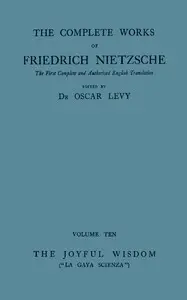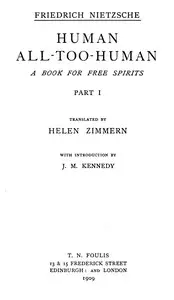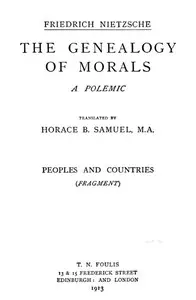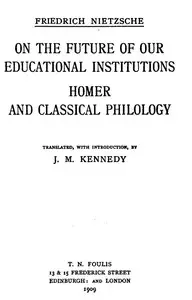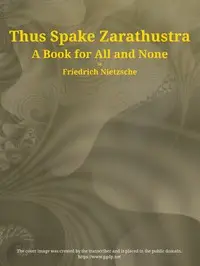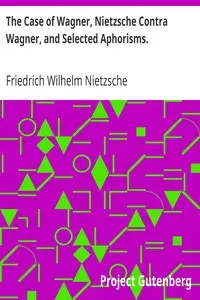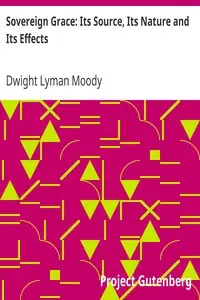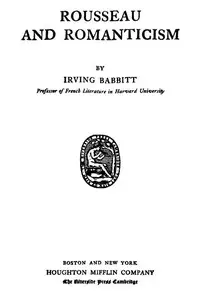"The Joyful Wisdom" by Friedrich Wilhelm Nietzsche is a philosophical treatise written in the late 19th century. The work explores themes of life, laughter, morality, and the human condition, attempting to reconcile the often painful realities of existence with a joyful acceptance of life itself. Nietzsche's distinctive voice and provocative ideas challenge conventional beliefs, positioning him as a significant figure in existential thought. The opening of "The Joyful Wisdom" establishes the groundwork for Nietzsche's exploration of happiness and human experience. He introduces the concept of "joyful wisdom" as a playful yet profound response to life's trials, reflecting on ideas of health and convalescence, and suggesting that genuine wisdom can emerge from suffering. Nietzsche emphasizes the importance of questioning existing moral frameworks while advocating for a new understanding of life that embraces both its joyous and tragic elements. He suggests that humor and lightness are essential tools in navigating existence, setting the stage for a critical examination of conventional beliefs about morality, suffering, and happiness throughout the text. (This is an automatically generated summary.)
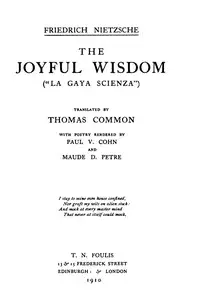
The Joyful Wisdom ("La Gaya Scienza") Complete Works, Volume Ten
By Friedrich Wilhelm Nietzsche
"The Joyful Wisdom" by Friedrich Wilhelm Nietzsche is a philosophical treatise written in the late 19th century. The work explores themes of life, lau...
Friedrich Wilhelm Nietzsche was a German classical scholar, philosopher, and critic of culture, who became one of the most influential of all modern thinkers. He began his career as a classical philologist before turning to philosophy. He became the youngest person to hold the Chair of Classical Philology at the University of Basel in Switzerland in 1869, at the age of 24, but resigned in 1879 due to health problems that plagued him most of his life; he completed much of his core writing in the following decade. In 1889, at age 44, he suffered a collapse and afterward a complete loss of his mental faculties, with paralysis and probably vascular dementia. He lived his remaining years in the care of his mother until her death in 1897, and then with his sister Elisabeth Förster-Nietzsche. Nietzsche died in 1900, after experiencing pneumonia and multiple strokes.

